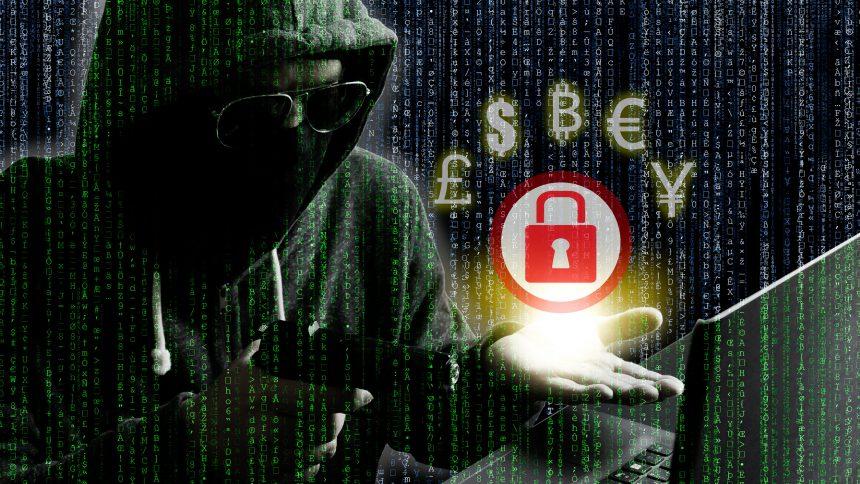Ransomware is a type of malicious software (malware) that encrypts a victim’s files and demands a ransom payment to restore access. This insidious form of cyberattack has gained prominence over the years, posing a significant threat to individuals and organizations alike. Ransomware typically infiltrates systems through phishing emails, malicious downloads, or vulnerabilities in software, exploiting unsuspecting users to achieve its nefarious objectives. Once installed, it can cause severe disruptions, leading to data loss, financial harm, and even reputational damage.
The Threat: XIXTEXRZ Ransomware
XIXTEXRZ ransomware exemplifies the dangerous capabilities of this malware category. After successfully infiltrating a system, it begins its malicious activity by encrypting files with specific extensions, rendering them inaccessible to the user. A notable example of the file extension used by this ransomware is .xixtexrz, which gets appended to the filenames of encrypted files. This tactic is designed to signify that the files are no longer usable without a decryption key.
Installation and Functionality
The installation process of XIXTEXRZ ransomware typically starts with a user inadvertently downloading a malicious file or clicking on a harmful link embedded in a phishing email. Once installed, the ransomware immediately starts scanning the system for files to encrypt, including documents, photos, and other critical data. During this process, it may also attempt to disable security measures, making detection and removal more challenging.
The consequences of having XIXTEXRZ on a system can be dire. Victims often find that their essential files are encrypted, and they are unable to access them without the ransom being paid. In many cases, the ransom note left by the malware creators will demand payment in cryptocurrency, offering little to no assurance that the victim will receive their files back, even if they comply with the demands.
Ransom Note Overview
After the encryption process is complete, XIXTEXRZ leaves a ransom note on the infected system, usually in the form of a text file. This note typically includes threatening language, instructions for payment, and a warning against attempting to decrypt the files without the provided key. The note may state that the victim must pay a specified amount within a limited time frame, or the ransom will increase. It may also include contact information for the attackers, urging victims to reach out for further instructions.
Text presented in this message:
— What happened? —
All of your files are encrypted and stolen. Stolen data will be published soon
on our tor website. There is no way to recover your data and prevent data leakage without us
Decryption is not possible without private key. Don’t waste your and our time to recover your files.
It is impossible without our help
— How to recover files & prevent leakage? —
To make sure that we REALLY CAN recover your data – we offer FREE DECRYPTION for warranty.
We promise that you can recover all your files safely and prevent data leakage. We can do it!
— Contact Us—
(XIXTEXRZ)
General Purpose and Infiltration Methods
The primary objective of ransomware like XIXTEXRZ is financial gain. Cybercriminals leverage the victim’s fear and desperation to recover lost files, compelling them to pay the ransom. The methods of infiltration vary, but common tactics include:
- Phishing emails: Malicious attachments or links disguised as legitimate correspondence.
- Malicious downloads: Users unknowingly downloading infected software or files from untrustworthy websites.
- Exploiting vulnerabilities: Taking advantage of security flaws in software or operating systems to install the ransomware without user consent.
Once it infiltrates a system, XIXTEXRZ poses a significant threat to both the infected computer and its owner. The loss of important files can lead to financial loss, emotional distress, and potential business interruptions.
Symptoms of XIXTEXRZ Ransomware Infection
Users may notice several symptoms indicating the presence of XIXTEXRZ ransomware, including:
- Inaccessible files: Many files on the system become unreadable or show unusual extensions.
- Ransom note appearance: A text file detailing ransom payment instructions appears on the desktop or in other folders.
- Performance issues: The infected system may run slowly or become unresponsive as the ransomware consumes resources.
Detection Names for XIXTEXRZ Ransomware
To determine if XIXTEXRZ ransomware is installed on your system, look for the following detection names:
- Ransom:XIXTEXRZ
- XIXTEXRZ Virus
- XIXTEXRZ Ransomware
Similar Threats
Users should also be aware of similar ransomware threats that might compromise their systems, including:
- STOP/Djvu Ransomware
- Sodinokibi Ransomware
- REvil Ransomware
Comprehensive Removal Guide for XIXTEXRZ Ransomware
If you suspect that your system is infected with XIXTEXRZ ransomware, follow these steps to remove it effectively:
Step 1: Isolate the Infected Computer
- Disconnect the infected computer from the internet to prevent further data loss or infection spread.
- If applicable, disconnect from any shared networks.
Step 2: Boot into Safe Mode
- Restart your computer.
- As it starts, press F8 (or the appropriate key for your system) to access the Advanced Boot Options menu.
- Select Safe Mode with Networking and press Enter.
Step 3: Use Anti-Malware Software
- Download and install a reputable anti-malware tool. We recommend SpyHunter for its robust ransomware removal capabilities.
- Update the anti-malware software to ensure it has the latest definitions.
- Run a full system scan and follow the prompts to remove detected threats.
Step 4: Restore Files from Backup (If Available)
- If you have backups of your encrypted files, restore them after ensuring that the malware is completely removed from your system.
- Verify that the backup is clean and free from any ransomware remnants.
Step 5: Update and Strengthen Security Measures
- Ensure your operating system and all software are updated to the latest versions to mitigate vulnerabilities.
- Consider using a firewall and additional security features to enhance your computer’s protection.
Preventing Future Infections
To reduce the risk of ransomware attacks, implement the following preventive measures:
- Regularly update software: Ensure your operating system, applications, and security software are up-to-date.
- Educate yourself about phishing: Be cautious when clicking links or downloading attachments from unknown sources.
- Use strong, unique passwords: Employ complex passwords and consider using a password manager.
- Back up your data: Regularly back up important files to an external drive or cloud service to minimize data loss in case of an attack.
For enhanced security, consider using SpyHunter to regularly scan your computer and eliminate any existing threats. Download it today and take advantage of a free scan to identify potential vulnerabilities and malware on your system.
Conclusion
XIXTEXRZ ransomware represents a significant threat to individuals and organizations alike. Understanding its operation, symptoms, and removal processes can help users safeguard their data and reduce the risks associated with ransomware attacks. By following the preventive measures outlined above, users can protect their systems from the devastating effects of this malware.
If you are still having trouble, consider contacting remote technical support options.




